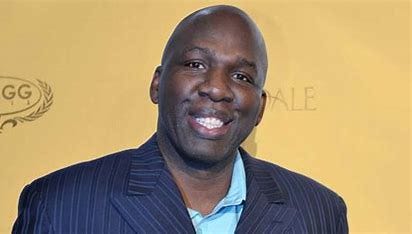Years ago, I was fortunate to see Dr. Bob Rotella, the famed sports psychologist and author of several golf psychology books including, “Golf is Not a Game of Perfect”, speak at a small seminar of about 20 people on the role of the mind in golf and sports performance. I had read, “Golf is Not a Game of Perfect” and taken much of what he wrote in the book to heart. I was anxious to learn more and was not disappointed.
Dr. Rotella worked as the director of sports psychology at the University of Virginia. He was originally known for his work with sports teams, primarily basketball and lacrosse. Golf came later when he was approached by tour player Denis Watson who then went on to win three tournaments in 1984. He became widely known in golf circles shortly thereafter. Numerous tour players worked with Dr. Rotella such as: Tom Kite, Paul Azinger, Padraig Harrington and Nick Price, to name a few.
During the seminar I attended, Rotella told several stories and how they relate to the power of the mind. One involved the ‘83-’84 men’s basketball team at the University of Virginia. The team was getting ready to face the #1 team in the country, the North Carolina Tarheels. The Tarheels were loaded with talent. You might recognize some of these names: Kenny Smith, Brad Dougherty, Sam Perkins and some guy named Michael Jordan. Virginia’s starting center that season was a freshman named Olden Polynice. Polynice appeared to be going through the motions in practice. Rotella asked him what was wrong. Polynice was worried how badly North Carolina was going to beat Virginia because of the greatness of North Carolina.
“Compared to what?” Rotella asked.
“Compared to us,” Polynice replied. “They’re so much better than we are.”
“Have you played them before?”
“No.”
“Then how do you know they’re better? Make them prove they are better.”
Polynice took it to heart. North Carolina did beat Virginia, 69-66, but Polynice and his teammates gained a ton of confidence. By simply changing mindset from, “We can’t win because they are so much better,” to, “We are going to make them prove they are better,” they learned they were as good as anybody. That year, Virginia made it to the Final Four.
It’s a story which has stuck with me. I might be competing against a golfer(s) with more talent, but I was going to play as well as I could to make them use their talent to beat me. Just like Polynice and his Virginia teammates, my play got better, and I learned I could compete with anyone.
Rotella also spoke about another story. This story is one of my favorite stories and involves the greatest golfer of all-time, Jack Nicklaus.
Rotella and Nicklaus had done a speaking tour together a few years earlier. At one particular event, Nicklaus made a comment he had never missed a putt from 3-feet on the back nine of a final round with the tournament on the line. When it came time for the question-and-answer session, a gentleman stood up.
The gentleman challenged Nicklaus’ statement saying he had seen Nicklaus miss a three-footer on the 71st hole of a PGA Tour event, and Nicklaus lost by one shot.
Nicklaus responded, “It wasn’t me.”
The man insisted it was Nicklaus.
Nicklaus repeated confidently, “It wasn’t me.”
The gentleman started getting agitated so, Rotella interceded. He explained this was an example of the greatness of Jack Nicklaus. Rotella continued by saying Nicklaus possessed an amazing mental ability which allowed him to immediately forget bad shots and only remember good shots. While Rotella explained the man was probably correct, in Nicklaus’ mind, the missed 3-foot putt the gentleman spoke about never happened.
The Nicklaus story gives us an example of letting the negative go. This is incredibly difficult for most of us, me included. Besides, none of us are Jack Nicklaus. His mental strength is off the charts. I do, however, believe there is benefit in remembering negative experiences as they afford learning opportunities which allow for improvement. But, in the moment, we have to be able to set them aside and move on to the next shot.
The power of the mind doesn’t guarantee success, but it can ensure failure. If we think we will fail at a task such as a round of golf or a drive or a putt, we will fail. But if we approach the same tasks with the right mindset, we give ourselves an opportunity for success.
As always, be thankful when you get to play this amazing game. Be grateful for every shot. Appreciate every moment on the course. Now, go golf!
Keep reading with a 7-day free trial
Subscribe to Go Golf to keep reading this post and get 7 days of free access to the full post archives.






